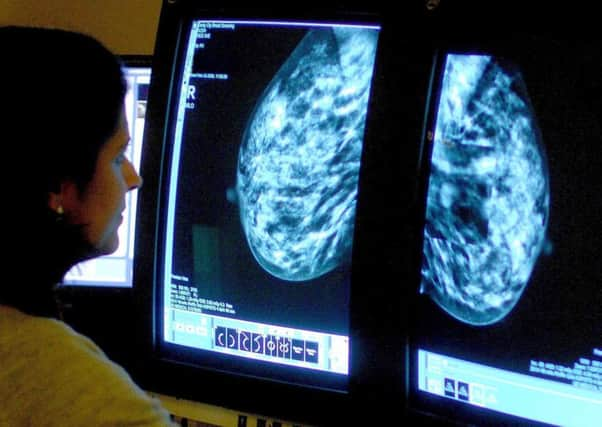Breast cancer discovery explains why treatment doesn't always work


The discovery helps explain why some women with the disease cease responding to drugs called aromatase inhibitors that halt oestrogen production.
In a quarter of women taking these types of drugs, their tumour cells produce extra copies of genes for the aromatase enzyme which allows them to make oestrogen, a study has shown.
Advertisement
Hide AdAdvertisement
Hide AdResearcher Dr Luca Magnani, from Imperial College London, said: “For the first time we have seen how breast cancer tumours become resistant to aromatase inhibitors.
“The treatments work by cutting off the tumour’s fuel supply – oestrogen – but the cancer adapts to this by making its own fuel supply.”
About 70 per cent of breast cancers are stimulated by oestrogen.
Another drug, tamoxifen, blocks the receptor molecules on tumour cells that allow them to respond to the hormone.
Both tamoxifen and aromatase inhibitors eventually stop working in about one in three patients and scientists are keen to find out why.
The team is now trying to develop a test that can identify patients whose cancer cells are starting to produce aromatase and oestrogen.
Dr Magnani added: “In many cases when an aromatase inhibitor stops working in a patient, doctors will try another type of aromatase inhibitor.
“However, our research suggests that if the patient’s cancer has started to make their own aromatase, this second drug would be useless. This is why we need a test to identify these patients.”
Advertisement
Hide AdAdvertisement
Hide AdThe findings are published in the journal Nature Genetics. Tumour samples were taken from 150 women whose breast cancers had returned and spread. All the women were treated at the European Institute of Oncology in Milan, Italy.
Dr Richard Berks, from the charity Breast Cancer Now, said: “This reveals a new way that the most common breast cancers can survive anti-hormone treatments.
“By producing more aromatase, breast tumours could resist treatment and return elsewhere around the body, years or even decades after the disease first appeared. Once breast cancer spreads it sadly becomes incurable and so we urgently need to tackle drug resistance.
“It is now critical we find ways to spot, at an early stage, whether a person’s breast cancer is becoming resistant to treatment so that they can be moved onto more effective options.”